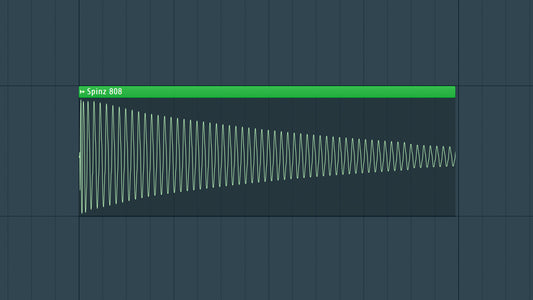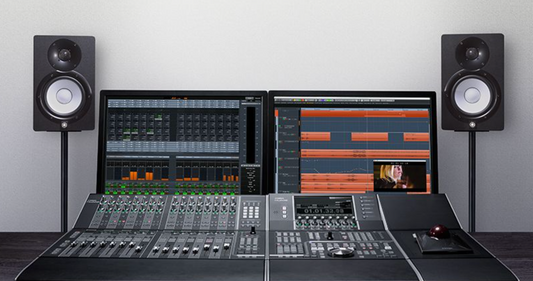Introduction
One of thee most important thing I have learned to make my music better is music theory. In the realm of music production, understanding the language of music is like having a master key to unlock boundless creative possibilities. Music theory serves as the foundation that empowers music producers to compose, arrange, and produce with purpose and precision. In this blog, we'll explore essential music theory concepts that every music producer should embrace to elevate their craft and harness the full spectrum of musical expression.
DOWNLOAD 20+ FREE SAMPLE PACKS - CLICK HERE

1. Understanding the Basics:
- Notes and Pitches: Begin by familiarizing yourself with the musical alphabet, notes, and their corresponding pitches on the staff.
- Rhythm: Grasp the fundamentals of rhythm, including time signatures, note values, and rests.
2. Scales and Key Signatures:
- Major and Minor Scales: Learn major and minor scales as they form the backbone of most Western music.
- Key Signatures: Understand key signatures and how they indicate the tonal center of a piece.
3. Chords and Harmony:
- Chord Construction: Dive into the construction of major, minor, diminished, and augmented chords.
- Harmonic Progressions: Explore common chord progressions to understand the flow of harmony in music.
4. Intervals and Melody:
- Interval Recognition: Learn to identify intervals, the building blocks of melody and harmony.
- Melodic Construction: Understand how melodies are crafted using scales and intervals.
5. Chord Progressions:
- Common Progressions: Study popular chord progressions like the I-IV-V in major keys and the i-iv-VI-V in minor keys.
- Emotional Impact: Recognize how different progressions evoke specific emotions in music.
6. Modes:
- Modal Scales: Explore modes such as Dorian, Phrygian, and Mixolydian to add color and flavor to your compositions.
- Modal Interchange: Understand how modal interchange allows you to borrow chords from parallel modes.
7. Diatonic Harmony:
- Building Chord Progressions: Learn the principles of diatonic harmony, where chords are derived from the notes of a particular scale.
- Functional Harmony: Understand the roles of tonic, subdominant, and dominant chords in creating tension and resolution.
8. Time Signatures and Tempo:
- Time Signature Variations: Experiment with different time signatures to create rhythmic interest.
- Tempo Changes: Explore how tempo changes can affect the mood and dynamics of a composition.
9. Cadences:
- Perfect and Imperfect Cadences: Recognize the resolution points in musical phrases and understand how cadences contribute to the structure of a piece.
10. Counterpoint:
- Voice Leading: Delve into the art of counterpoint, understanding how multiple melodic lines interact and complement each other.
11. Orchestration and Arrangement:
- Instrumental Roles: Learn how to effectively assign roles to different instruments in an arrangement.
- Textural Variety: Experiment with different orchestrational techniques to add texture and depth to your compositions.
12. Transposition:
- Changing Key: Master the skill of transposing melodies and chords into different keys, allowing for versatility in your compositions.
13. Ear Training:
- Interval Recognition: Develop your ear through interval recognition exercises to improve your ability to identify pitches by ear.
- Chord Progression Identification: Practice identifying common chord progressions by ear.
14. Analysis of Music:
- Study Existing Pieces: Analyze the works of established composers to understand how they employ music theory concepts in their compositions.
15. Experimentation and Creativity:
- Breaking the Rules: While understanding theory is crucial, don't be afraid to experiment and break traditional rules to create your unique sound.
DOWNLOAD 20+ FREE SAMPLE PACKS - CLICK HERE
Conclusion
Music theory serves as the compass that guides music producers through the vast landscapes of sonic expression. By embracing these essential concepts, you equip yourself with the tools to craft melodies, harmonies, and arrangements that resonate with depth and intention. Whether you're composing a symphony or producing electronic beats, a solid understanding of music theory empowers you to speak the universal language of music with confidence and creativity. Let the essentials of music theory be your guiding light on the journey to sonic mastery. Happy composing!




